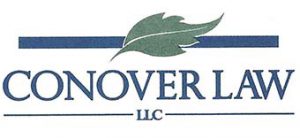Probate and Estate Administration, Trust Administration
Estate Administration occurs after a person dies. After death, assets need to be distributed according to their will, or according to the intestate rules of succession of the state they resided in or owned property in. In order to facilitate this process, the court may appoint a Personal Representative (known as an Executor in other states). Often the appointee is designated in a person’s will. The personal representative’s duties include but are not limited to: Lodging (or filing) the will with the court, advertising a notice to creditors in the paper, preparing inventories and accountings, filing tax returns, collecting and maintaining assets, paying bills, and distributing assets.
The process to be appointed as personal representative begins with the filing of the original will along with application to open probate and be appointed as personal representative. The court will then issue an Order opening probate and appointing the personal representative and issuing Letters Testamentary (if there was a will) or Letters of administration (if there was not a will). The personal representative will then use the letters to open an estate bank account, collect assets, pay any claims or fees associated with the estate’s administration. Once all assets have been collected, creditor matters have been settled, and all other administrative actions have been taken, the personal representative will petition the court for final settlement. Upon the court approving the petition for final settlement, the personal representative will distribute the estate assets accordingly.
It is important to note that the Estate will only consist of assets in the deceased person’s name individually; if there are assets that are jointly owned or have beneficiary designations, they will generally pass to the named person outside of the probate process. If assets were titled in the name of a Trust, there will be a Trust Administration.
Trust Administration is the process of distributing assets according to a trust. The trust agreement generally appoints a trustee who is responsible for managing the trust assets. The trustee’s duties include but are not limited to: preparing inventories and accountings, filing tax returns, settling any outstanding debts, and distributing assets. In many ways this may be similar to a Probate Administration, however, there may be specific provisions of Trust that dictate additional terms or administrative requirements. The trust document itself will largely drive the process of administration.
There are times when either the Estate or Trust Administration may become contested or there are other disagreements between the heirs or beneficiaries. This may lead to additional court requirements or lead to litigation, which could include a variety of procedural steps.
Our team at Conover Law, LLC has experience representing the interests of the Personal Representative, Trustee, heirs or beneficiaries. Whether the administration is “simple” or leads to litigation, we are here to help and ensure your rights are protected and duties met.
